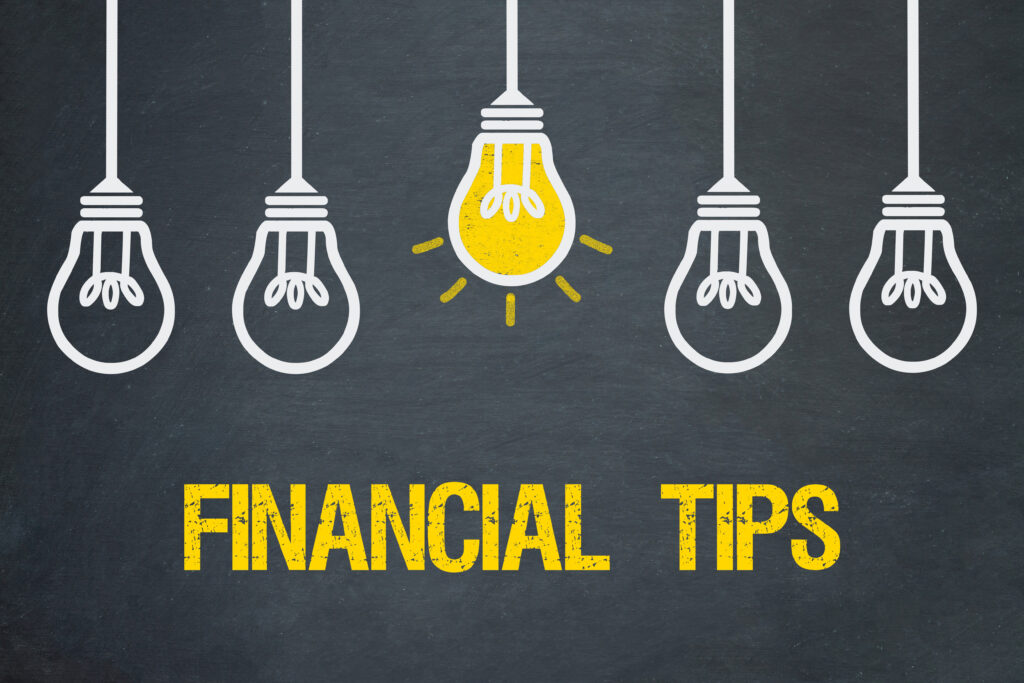Personal Financial Tips- Part 1 “The Basics”
In this post, we’ll provide our best financial tips to help you manage your personal finances better. We’ll break down our top personal finance tips into three categories: the basics, budgeting, and saving. You can read through to view our financial tips to help you get your finances in order. This is part one of a three part series. Part two on budgeting can be found here and three will be out soon.
Managing your money isn’t always a fun activity, especially when your friends are begging you to go out on the weekend or the latest tech gadget you’ve had your eyes on hits the market. Spending your money can be very tempting, and can lead to poor financial choices. However, there are plenty of ways you can manage your money wisely, while still enjoying life’s simple pleasures.

Financial Advice Basics
No matter who you are, there are certain basic personal financial tips you should follow. Doing so can help ensure you keep your personal finances in good health. Once you have the basics down, managing your finances can become much easier. Then, you can move onto some of my more comprehensive money management tips.
Buy the Right Insurance
Insurance can be great in unfortunate events, whether a natural disaster tears off your roof or you get in a car accident. However, too many people are often roped into insurance plans that cost too much.
Considerations for different types of insurance:
- Life Insurance: Is it worth it?
If someone depends on your income, buy life insurance. However, if you don’t have dependents, life insurance isn’t always necessary.
- What types of insurance should you definitely have if you can afford it?
You should also consider insuring against financial disasters, not just annoyances. Buy renters or homeowner’s insurance, car insurance, disability insurance, and health insurance.
- What insurance policies can you likely skip on?
By the same token, you might want to steer clear of extended warranties, smartphone insurance, travel insurance, or payment protection plans, as these might not always be necessary and can cost you a lot of money.
Use Your Credit Card Wisely
Credit cards are useful but can be dangerous — kind of like power tools. Using them frequently can make it more likely that you’ll cut your thumb off, so to speak. A lot of sad stories begin, “I always paid off my credit card every month, until…”
- How you can use your credit card wisely:
Using your credit card wisely and keeping your credit utilization ratio below 30 percent can help you keep your credit score in check.
- Why it’s important:
Preserving your credit score is important, as it’s used for a variety of financial matters, such as taking out a mortgage or applying for an auto loan.
- How to keep an eye on your credit score:
With that said, make sure to check your free annual credit reports for errors. This should be a regular action you take at least once a year. By periodically pulling a credit report, you can look for any errors or mistakes that might be lowering your credit score.
Credit scores are simpler than you think. If you pay your bills on time, more than likely, you’ll have a good credit score. If you don’t, you won’t.
Don’t Forget Your Taxes
Nobody likes paying and filing taxes, but failing to do so can lead you into serious financial trouble.
- When are taxes due?
Taxes either come around once a year or quarterly, depending on your occupation. With that said, make sure you have a financial calendar that reminds you when to pay or file your taxes.
- How can you save on your taxes?
- One piece of financial advice for saving on taxes is to contribute to your 401(k) or other retirement plans. Clever tax-avoidance schemes are often illegal, so make sure you’re honest and make legal choices that can save you money.
- If you always hire someone to do your taxes, try doing it yourself (or use tax software) once. If you always do it yourself, try hiring someone. Either way, you might save money or learn something.
Keep Track of Interest Rates
With almost any financial move you make, interest rates will follow. Credit cards, student loans, mortgages, savings accounts—these are just some of the types of loans, debts, and financial accounts you’ll have that come with an interest rate.
- Why is it important to keep an eye on interest rates?
Knowing the interest rates on these various types of accounts is essential because you might be spending more or earning less on your various debts and savings commitments. It’s best to keep an eye out on your interest rates, so you know what accounts to focus on.
Now that you have read through our basic personal financial tips, click here for part two.




